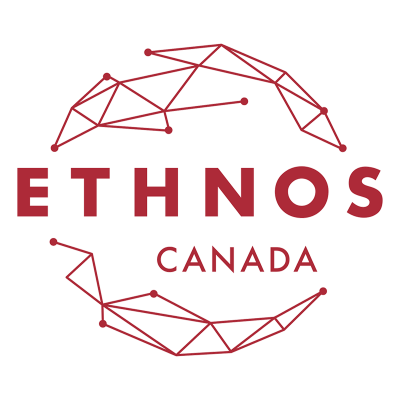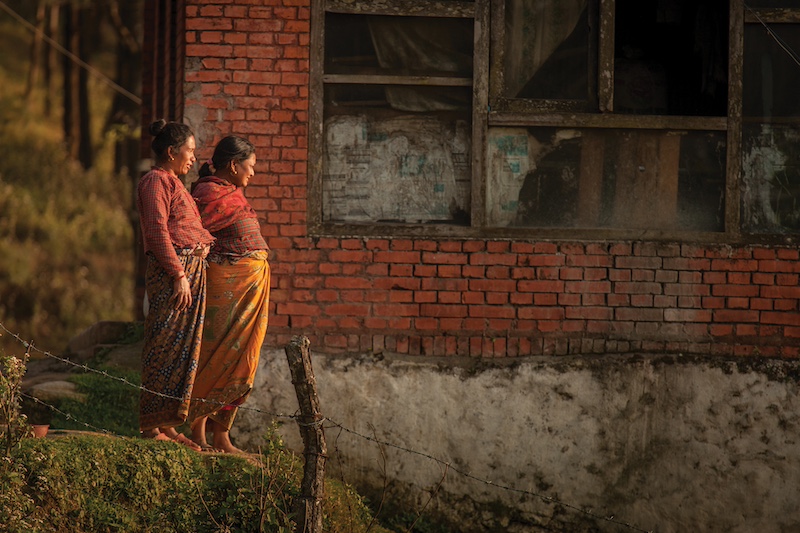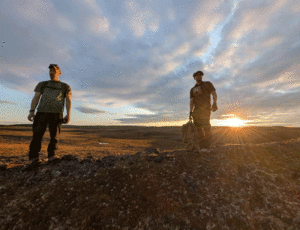Where is God sending us?
You may be familiar with the story of Paul Fleming, founder of Ethnos, then known as New Tribes Mission. After hearing a message from a pastor, Paul recognized for the first time that salvation is by God’s grace alone through faith, not through anything Paul could do. Paul put his trust in Jesus Christ that night. “I realized that, now that I belonged to Christ, it was my business to follow Him,” Paul said.
Paul was determined that he would be willing to go to the mission field if God would send him. As he grew in his walk with the Lord, “desperation gripped [his] heart,” and Paul began to realize that it was not enough for him to just be willing, but he needed to act in obedience to the Lord’s command to make disciples of all nations.
On February 7, 1937, Paul and his wife, Cherrill, set sail for Singapore en route to Sumatra, Indonesia, but were redirected to British Malay and its surrounding territory as the gateway to one of the greatest unevangelized fields of the world. When they learned of the need in British Malay, the Flemings changed their destination. “I found out later,” Paul wrote, “that the Apostle Paul didn’t know where he was going either. He thought he was going to Asia, but the Lord changed his course.”
Paul and Cherrill formed a team with a small group of missionaries, and the gospel began to spread throughout the region. Because they listened to God’s instruction for them to go and allowed God to direct their steps, a people who had never heard God’s Word were given the chance to hear and to believe.
While the methods Ethnos Canada and the other Global Partners utilize today may differ from those of Paul Fleming and early missionaries, our goal remains the same: to see a thriving church for every people. In a world with so many people who have yet to hear God’s Truth, how do we determine where we should go? What factors must we consider before entering a country or region for the first time to begin church planting work among an unreached people group?
More than 6,000 of the world’s people groups are still unreached. So, do we throw a dart at a map? Should we spin a globe and go where our finger lands? While God can certainly use these things, Ethnos and the other Global Partners like to take a more strategic approach.
It starts with a need.
*Keith Copley serves on the International Ministries Team (IMT) as a Church Planting and Leadership Consultant, so understanding the need for missionaries is his first step. He explained, “Often the IMT will get a request or contact that initiates a conversation about a need.” When we speak of a “need,” we are referring to a people who need God’s Word; this does not refer to physical or practical needs, although these needs often accompany spiritual needs.
Each need that is presented to the IMT is unique, so there is not a one-size-fits-all pattern for how to go about starting work in a new place. What works in one country might not work in another, and sometimes God opens doors in ways we don’t expect. Ethnos has determined, however, that there are certain key components of beginning church planting work in a new-to-us country that cannot be compromised. We want to be flexible in how we approach a new work and be open to whatever doors God might open for us. At the same time, there is no need to reinvent the wheel, and research and experience have shown us some best practices that have become standard procedure when looking at entering a country for the first time.
The research begins.
After a need is presented to the IMT, a small team is formed, and research begins. This team is responsible for gathering valuable information that will determine the next steps. We cannot overlook the importance of research in the process of church planting in a new region.
First and foremost, the team must conduct research to determine if there really is a need. Organizations such as Joshua Project work to compile and share data on people groups around the world. This data is very helpful for Ethnos in determining the needs in different regions. If we can understand which people groups are categorized as “reached” and “unreached” or “least reached,” we can begin to form an idea of where to go next. (As a sidenote, within the context of this article, the terms “unreached” and “least reached” are used synonymously.)
*As Clark Aspinwall points out, just because a people group is categorized as unreached does not mean that no work is being done there. He says, “A lot of times you’re going to have your bigger mission groups already involved” in church planting and discipleship. This is something that can be researched from outside the country during this initial stage. But as the team investigates what work is already being done among unreached people groups of the country, there comes a point when the research needs to move from the desk to the field.
* Keith Copley and his wife, Angie, began serving with Ethnos360 in 1998. They lived and worked among the Hewa people, an isolated people group in Papua New Guinea (PNG), first learning their culture and language, then teaching the Hewa God’s Word in the Hewa’s own language, eventually witnessing the birth of the Hewa church. Keith then served as the Managing Director for the field of PNG.
* Clark Aspinwall is a member of the IMT. Clark and his wife, Mary, served for more than 30 years in Southeast Asia Mainland (SAM). In SAM, Clark began serving as a church planter among an unreached people group and then served on the field leadership team.
The initial visit
It is now time for the team to make plans to visit the country. Before travel can begin, preparations must be made. The team often will use this time to build relationships with contacts in-country and form a strategy for their visit. Methods can vary greatly depending on the country but often include booking transportation and accommodations, gathering provisions and performing numerous other details that would go into planning any other missions-focused trip.
“Then,” Keith says, “a small team is sent in for a visit to gain a good understanding of the condition of the Church on the ground and an understanding of the needs being expressed.” The team meets with national believers and visits the people to assess their interest in hearing God’s Word. Does the Church desire to grow in the Lord? Does the Church recognize the needs of unreached people groups? Does the Church desire to bring the Good News to their neighbours who have not heard? Is the Church working to engage unreached people groups? What needs does the Church have?
The goal is to come alongside the national Church in the work they are already doing among their people to see God glorified. As Keith puts it, “The Church is always the primary driving factor.” The team shares what we do as an organization — not to downplay what the Church is or isn’t doing, but to find ways in which Ethnos and the local church can work together. “We’re learning to be careful as we go in; we’re not judging,” Clark says. “We’re asking, ‘How can we serve here?’ And if there is truly a need, we want to be able to go in with hearts of servants.”
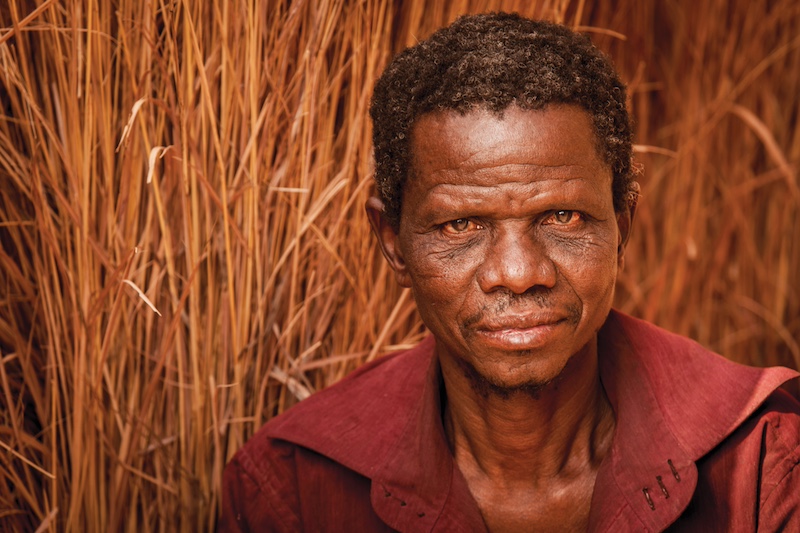
The goal is to come alongside the national Church in the work they are already doing among their people to see God glorified.
A look at the how and the who
While on this initial trip, the team typically not only focuses on the condition of the Church but also asks questions and conducts research to determine how we can send missionaries into this new context and who can go. To determine this, we must ask questions such as: Are the people of this region hostile to God’s Word? How accessible is this country to our organization? Is there a best way to enter the country? What is security like for foreigners, especially foreign missionaries, living in this country? How can we support missionaries and keep them safe while they minister here? What are our transportation options for missionaries and their supplies while in-country?
It serves us well to be flexible in our plans. Sometimes God closes one door and opens another. In fact, there are usually many more open doors than there are missionaries to walk through them! “I would say there’s more opportunity than we have personnel to fill,” Clark added. “There’s need, and the Church recognizes it, and there have been invitations into those things that they’re already doing. It’s been encouraging.”
Using the information gathered in the initial trip, the IMT will determine what is necessary in order to begin this new work. The IMT will also consider whether there are missionaries willing and equipped to serve as consultants, leaders, church planters and support missionaries in this new country.
At times, finding missionaries who can go proves to be a complex challenge. Even if there are missionaries willing and equipped to go, sometimes they are not the right fit for the context. Factors such as nationality, ethnicity and physical appearance can affect the people’s perception of the missionary. In some cases, if the missionary is not able to blend in, this can put the missionary at risk and can compromise the work in that country. Clark says that in these instances, it is wiser to trust that God will raise up missionaries who would be better suited for the context, people who are a little more inconspicuous.
In many areas of the world, people labelled as missionaries or Bible teachers are met with skepticism or even hostility. The missionary team must be more subtle or even creative when engaging with these unreached people. Research is vital!
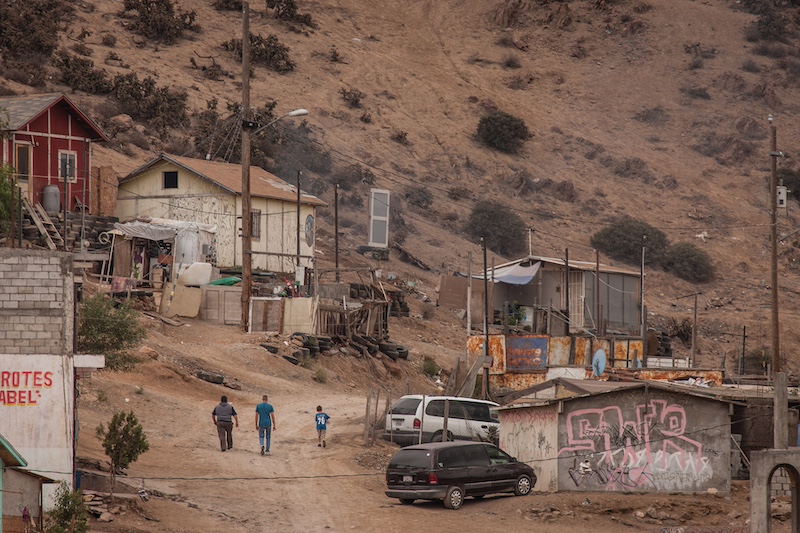
At times, finding missionaries who can go proves to be a complex challenge.
The missionary team
As important as this research and planning has been, it does not mean much for the unreached people group until we send people to bring them God’s Word. So, whom will we send? Or, the more accurate question would be, whom is God going to send?
This is another stage in the process of church planting that can vary significantly. Sometimes there are missionaries who have already built relationships with contacts in the country. Other times missionaries are ready to begin serving on a church planting team, but they are not yet sure where God is leading them. Still other times, willing missionaries may not yet be trained and equipped or do not have adequate financial support. But fundamentally, missionaries should be people who, like Paul Fleming, feel “desperation gripping their hearts” to act in obedience to God’s command to make disciples of all nations. In addition to this heart of obedience is the need for a solid foundation. Ethnos missionaries must go through foundational Bible teaching, receive valuable training and form partnerships with churches and individuals who will support them with prayer, encouragement and finances. This process can take years, but it is important that our missionaries be trained and equipped to be effective servants.
Ethnos missionaries must go through foundational Bible teaching, receive valuable training and form partnerships with churches and individuals who will support them with prayer, encouragement and finances.
A strategy for engagement
When the resources and personnel are assembled and everything is in order, the Global Ministries Agreement (GMA) board and the IMT will make plans for engagement. This is an exciting time in church planting work. Our missionaries are venturing into a new country for the first time in our history in order to engage with an unreached people group.
When we think of the task at hand and we recognize that eternity is at stake for those who have not yet heard and believed, it is easy to want to rush this process along. We don’t have much time! Even so, we desire to see thriving churches established, and this takes time. Rather than rushing in, dropping off copies of God’s Word and leaving, it is far more beneficial to the people if the missionaries take the time to establish relationships and learn their culture and language.
Typically, the missionaries will first learn the culture and language at the national level, which is a part of a process known as CLA, or culture and language acquisition. They will get connected with the local church and gather more information about the unreached people group. This can take several years before the team engages directly with the unreached people group. “The process is fluid, but the team must keep the long-term goal of engaging the least-reached in mind to keep the process on target,” Keith says. “We are there to engage on the edge of the Church and assist it in moving into new areas where God’s Word has not made impact.”
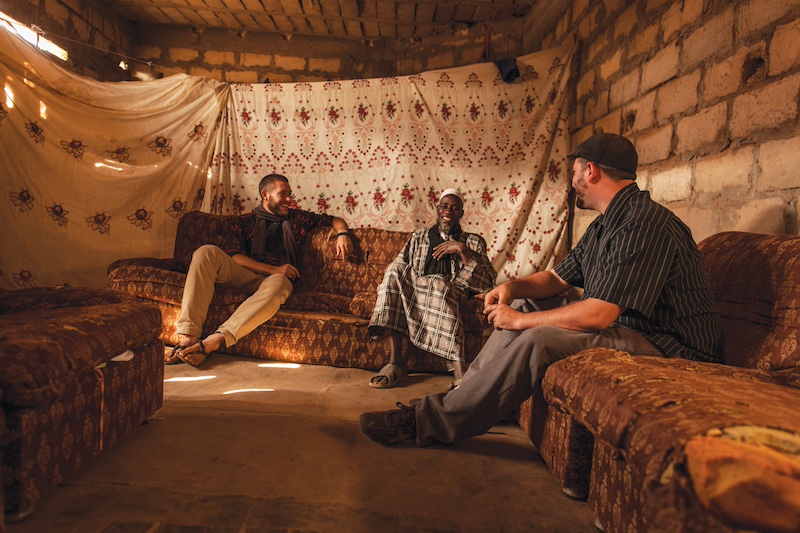
We are there to engage on the edge of the Church and assist it in moving into new areas where God’s Word has not made impact.
Once the missionary team is ready to engage directly, they will make plans to live among the people group. This usually involves receiving permission from the people and their leaders to live within their community and either finding existing housing or building their own. The team will then take the next step of CLA: learning the culture and language at the people group level. Most times, there are similarities between the national culture and language and the people group’s culture and language, but there are also important differences that can significantly impact Bible translation down the road. Therefore, it is important for missionaries to be fluent in both the national language and the people’s heart language, the language the people group knows best. All the while, the missionaries work to establish meaningful relationships with their new neighbours.
Often, the people group does not have its language in written form. In this case, the missionaries will develop a phonetically written language based on the people group’s verbal language and then teach the people to read and write in their own language. This can be a long and tedious task, and literacy is an ongoing undertaking, but it is crucial if the people are to be able to read, study and grow in God’s Word in their own Bible long after the missionaries have left.
The goal is a thriving church.
The missionaries will teach through the Bible chronologically from Genesis to Revelation in the people’s heart language. It is our desire and our goal that, as they study God’s Word together, they will recognize God’s story of grace throughout the Bible and will put their faith in Christ’s redemptive work on the cross for their salvation. As the people come to believe, a church is born. The people grow in spiritual maturity and in unity, function as a local body and as members of the Body of Christ, make disciples, and begin to share the Truth with others who have not yet heard. God establishes a thriving church.
GOD establishes a thriving church.
HE is the one who is going to build His Church, and HE rules over the nations.
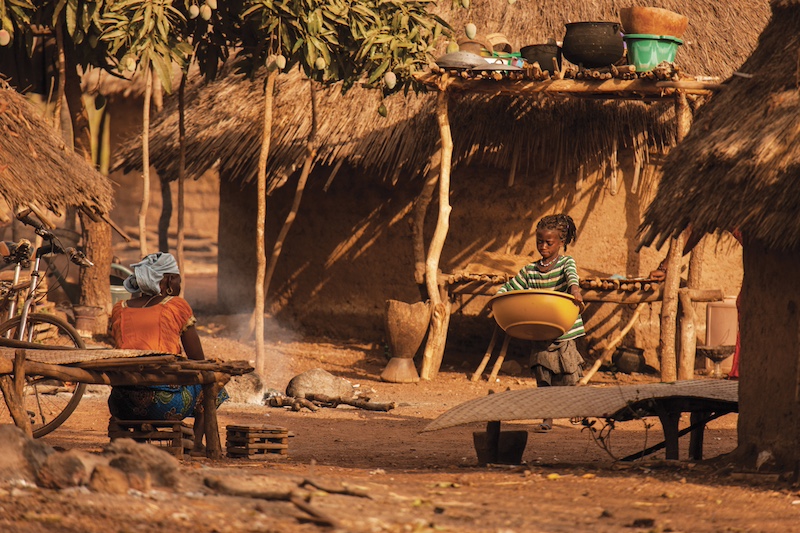
Story From the Field: A Pioneering Attitude
Dan Rabe serves on the IMT as both IMT Chairman and Director of African Ministries. Over the years, Dan and his wife, Sharon, played an influential role in bringing Ethnos into new-to-us countries in Africa.
Dan explained that the IMT “keeps our finger on the pulse of the world needs” and is aware of “various majority unreached areas.” Dan shared a real-life account of what it looks like for Ethnos to begin a work in a new country. Note that this is not a prescriptive example but simply how God worked through His servants in this specific instance. Names have been changed for security reasons.
“We first heard about the potential of God leading us into a particular country in Africa when we met Eric and Joan. They approached us and said they felt the Lord was leading them to a particular country in Africa, and what was particularly unique about the situation is that Eric is from this country originally. He had to leave the country with his family when he was 12 years old because of conflict and strife, so they fled to the USA. He was raised in an American culture context [and was] American in his expression and his way of life. Eric and Joan had both been through Ethnos360’s missionary training, and he wanted to know if there was any way that Global Partners might be interested in working in his country of origin. And, ironically, the country which he is [from is] one of the countries that lies within … one of the areas that fit our purpose statement.
“Here’s a gentleman who’s from that country and, with the training he has received, wishes to go back. That catches our attention. We have no infrastructure in that country. We have no field leadership team. We have no other Global Partners personnel there. And yet our response to him was: ‘We’re willing to accompany him as part of Global Partners and see what God wants to do.’
“Rather than make a one-week or two-week visit, we wanted Eric and Joan to move back into the country, connect with the local church and gain a sense of what God is doing [in order] to make decisions about whether we would open a new field. Over the next three to five years, we would have a much better understanding [to] make a decision: Is there a role for Global Partners?
“They made a first visit to connect with family and to spend time looking at some of the linguistic dynamics. Then there was a second trip in which they visited one of the strategic cities in the eastern part that lies in a safe, peaceful area. [Based on the information gathered in this second trip,] they decided that they would move their family to that city.
“We want them to become messengers who will draw local people to want to hear the gospel. In order to do that, we need to understand not only their language, but also the following: What are the values that make a person respectable? What is important [to the people]? How does an important message get communicated?
“Eric and Joan have been there now for over a year, and they’re engaging well in connecting with the local church [and] learning Swahili. But I would say one of the challenges of moving in this way, [is] it’s far better for getting firsthand data rather than just impressions from a short visit, but it demands a pioneering attitude. There’s no one that’s gone before Eric and Joan.
“Together with a single lady that has joined them along the way, … they are an exploratory team. They’re learning how to pursue sustained living in the country. They’ll need to understand [these issues]: What paperwork needs to be done? What are the implications if unrest hits the area? What are their escape routes? Will they be able to locate a strategic airport? [They need to figure out] all of those things, as well as connect with the local church and understand what is going on in terms of the Body of Christ. And those are not easy things to do on top of learning language and understanding culture, [learning] how people think and what spiritual life looks like. Not having a like-minded community around them is especially challenging, but, by God’s grace, they are proving to be resilient.
“[There is a lot] to be praying for, but I would tell you there are no regrets. They understand the key role that they’re playing, not only for their future work, but also for many who will be coming behind them.
With every stage of this process of church planting in a new country, there are many variables, and nothing is set in stone. What works one time might not work the next time, and God, in His sovereignty, often works in ways that we cannot predict. Rather than looking at this as our work, meaning Ethnos and the other Global Partners’ work, we want to look at this as God’s work. He is the one who is going to build His Church (Matthew 16:18), and He rules over the nations (Psalm 22:28). When we remember this, we recognize that it is a great privilege to be used by Him!
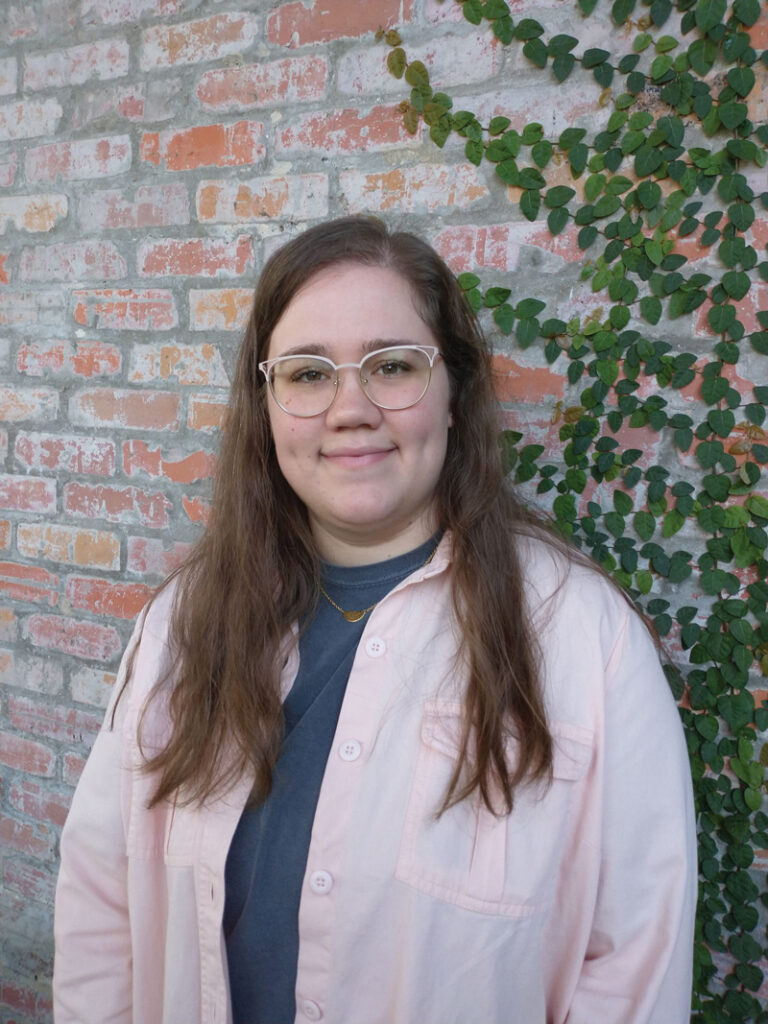
Contributing Writer
Abbie Patterson taught English in a public high school until God laid it on her heart to serve Him in full-time missions. For the first several years of her life, her parents served as missionaries with Ethnos360, first in Mexico, then at the Home Office in Florida. In 2023, Abbie returned to the Home Office to serve as a staff writer/editor. She is sent by Faith Bible Church of Jasper, Texas.
